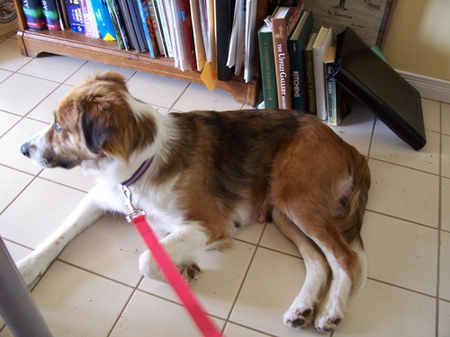Social skills
A dog who is well socialized with humans and other animals is less likely to develop behaviour problems. The principles of socializing puppies also apply to adult dogs.
If you have an adult dog who has not been socialized properly, you need to address this situation carefully and correctly. The best way to do this is to find a training school that holds socialization classes for older dogs in a safe and controlled environment. Doing this will make you feel more confident, too, especially if you have a dog who gets overexcited or even becomes aggressive when he meets people or other dogs, and you are not sure how to cope with the situation.

Having a dog who will sit and stay on command is the key to successful introduction, integration and interaction. If you can control your dog calmly, you stand a better chance of him accepting the situations around him so that interacting with other people and animals is more likely to be a positive experience for both of you.
House manners
It is important that your dog understands his place in the household and knowing this behaves appropriately. For example, you should be able to greet visitors at the door without your dog rushing to get there first or refusing to let them in.
There are a number of things that you can do to implement house rules that your dog understands. When you come home, do what you need to do first, such as taking off your coat and hanging it up or putting the groceries away. Do anything at all except go straight to your dog and give him attention. While he is rushing around in excitement at your return home and demanding attention, ignore him. You don’t want to reinforce his notion that he has high status in the household. After a while your dog will get fed up with being ignored and will either find something to do or lie down. At this point, call him to you and give him a few minutes of your attention.
Make sure that the rest of the family, and guests, also adopt this strategy. When family members or guests sit down, they should be asked to ignore the dog. If he tries to get on someone’s lap or a chair, gently but firmly push him down without saying anything to him. Even a reprimand would fulfil his desire for attention. After a few minutes, he will go away. Leave him for a further few minutes and then call him to you, using his name and the command ‘come’. Give him a bit of attention, then gently push him away with the command ‘finish’, and remove your hands and arms from his reach.
By introducing these few firm rules, you will soon see a change in your dogs behaviour. He will not always be demanding your attention or be under your feet. When in the house you have the right to sit and read, relax or work; it is simply bad manners for your dog to put himself m your way or refuse to move.